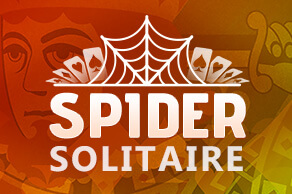In a move that could permanently cripple the Internet’s unchecked hoax industry (… and ruin at least a couple of decent punch lines), Facebook this week announced that it’s experimenting with a tag that will mark sites such as the Onion, Clickhole and Empire News as satire — and, hopefully, alert the millions of gullible people who share these sites as truth each week.
The tag is still a “small test,” Facebook told The Post, and isn’t terribly visible on the site. You’ll see it only in Facebook’s related-links box, which appears once you’ve clicked a shared link, gone off-site and then returned to Facebook.
Whenever that related-links box turns up a story from, say, the Onion, it will automatically mark that story with a [Satire] tag in the story’s headline. It’s unclear exactly how many sites are affected or how many users are seeing the tag now —Facebook declined to elaborate — but a test Tuesday morning showed [Satire] tags on articles from not only the Onion and its little brother, Clickhole, but also Empire News, National Report, the News Nerd and the Daily Currant.
Those sites deal less in legitimate satire than in viral hoaxes, intended to deceive: You may recognize them from our weekly debunk of dumb Internet rumors and faux news, and in the past week they’ve propagated stories like the (fake) imminent eruption of the Yellowstone supervolcano, the (fake) brutal killing of an infant by a New York City police officer, and the rapper Lil Wayne’s (fake) HIV diagnosis.
All of these sites, with the exception of the Daily Currant, have one other thing in common: They’ve all been online for 18 months or fewer. Bad satire, it turns out, is very good business, particularly of late. (“The money is right,” Robert Winland, a writer for Empire Sports, told The Post in April.) And as fake-news sites proliferate, it’s become more difficult for users to weed them out. A top post on Empire News will frequently boast more than a quarter of a million Facebook shares, far more than on any other social platform. As that information spreads and mutates, it gradually takes on the pall of truth.
In March, a group of researchers at Northeastern University dug into how conspiracy theories proliferate on Facebook, ultimately finding — to quote MIT’s Technology Review — that misinformation becomes entrenched when “ordinary satirical commentary or obviously false content somehow jumps the credulity barrier.” Moreover, as the researchers (and Empire News’ share count!) suggest, that kind of credulity-jumping happens … all the time.
What’s to be done? The media has proposed one solution: regular fact-checks of Internet shenanigans. Organizations such as Canada’s Media Smarts have proposed another: better media literacy education, to ensure people have the critical thinking skills to understand, and question, what they read online.
Facebook, then, has essentially just proffered its own quick fix: If you don’t want people to fall for fake news, clearly mark it — and on the platform where people encounter fake news most.
“We received feedback that people wanted a clearer way to distinguish satirical articles from others [i.e., real articles] in these [related news] units,” a Facebook spokesperson said.
This isn’t a panacea either, of course. For one thing, Facebook’s auto-tag feature predictably miscategorizes a number of fake-news site, potentially lending them credibility they do not in any way deserve. (As of Monday morning, neither Cream BMP nor Witscience.org were marked as satire; after repeat testing, The Post was unable to verify whether Civic Tribune, Huzlers or World News Daily Report got the tag.) It also doesn’t help that the satire markers are confined to the related-links box, which isn’t particularly visible. It’s certainly less obvious than, say, an Empire News post on your wall or in your News feed.
To further complicate the issue, Facebook makes a peculiar advocate for media transparency: The algorithms behind its News feed, which 62.5 percent of users are not even aware of, hide 70 to 80 percent of the content your friends and pages post — and do so according to calculations we can neither know nor scrutinize. That situation is becoming increasingly worrisome to news organizations, sociologists, Internet activists and other people who think about the intersection of information, media and democracy; it was, in fact, just in the news last week, when Ferguson trended on the (unfiltered) Twitter, long before it appeared on many users’ (algorithmically filtered) Facebook.
But regardless of Facebook’s other problems, of which there are decidedly many, it’s nice to see someone push back against the budding fake-news industry — which was otherwise growing unchecked. There’s also reason to hope that Facebook will expand the program in the future: After all, a number of Facebook features, including Graph Search, started out as “small tests.”
Until then, we’re forced to agree with the A.V. Club’s (satirical) solution: Just plaster everything on the site with a “[Stop Reading The Internet]” tag. That should work.










